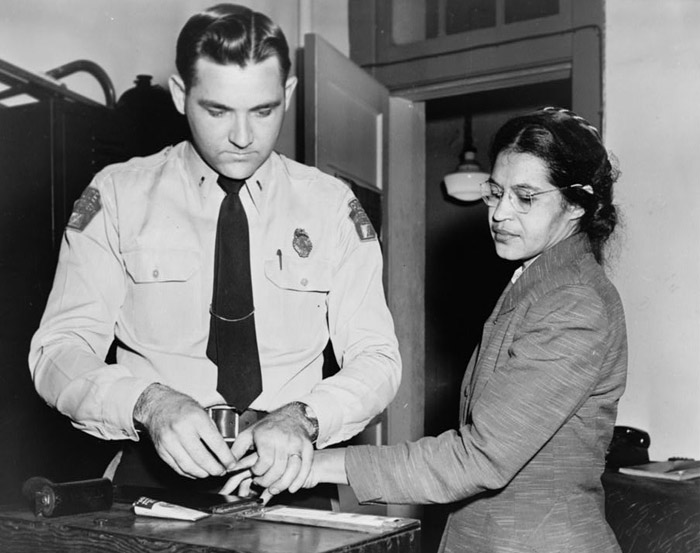On December 1, 1955, Parks boarded a bus, but sat at the frontmost row allotted for black people. A white man boarded the bus. The driver told all the Black riders to move one seat back to accommodate. (The law was that the driver has the power to make seat assignments.) Parks noticed that the driver had once refused to let he board twelve years ago. Parks, who had been studying on ways to protest nonviolently, refused to move even as the other African American riders complied.
Rosa Parks was arrested for not complying with the bus driver. She was found guilty on Dec. 5, and fined $10 plus a court cost of $4. This single action triggered the Montgomery Bus Boycott.
From Jo Ann Robinson, leader of the Women’s Political Council:
Another woman has been arrested and thrown in jail because she refused to get up out of her seat on the bus for a white person to sit down. It is the second time since the Claudette Colvin case that a Negro woman has been arrested for the same thing. This has to be stopped. Negroes have rights too, for if Negroes did not ride the buses, they could not operate. Three-fourths of the riders are Negro, yet we are arrested, or have to stand over empty seats. If we do not do something to stop these arrests, they will continue. The next time it may be you, or your daughter, or mother.
Boycotters arranged carpools to drive African Americans to work. When the city of Montgomery fought back by pressuring insurance companies to refuse insurance to boycotters, the organizers took out policies with Lloyd’s of London. African Americans did whatever they could do to get around: bicycles, hitchhiking, walking. Black taxi drivers matched the fee of the bus fare. Martin Luther King and Ralph Abernathy took part in the boycott.
Despite this being a peaceful protest, the boycotters were met with violence. King and Abernathy’s houses were firebombed. Four churches were burned down. King was jailed for conspiracy for interfering with a business. Even after the boycott was over, buses were fired on by snipers, churches were firebombed, and surrounding areas passed laws that would strengthen segregation.
And yet… victory. The boycott had lasted 381 days. The case went to the Supreme Court and ruled in favor of the boycotters by declaring that Alabama’s segregation laws were unconstitutional.



You must be logged in to post a comment.